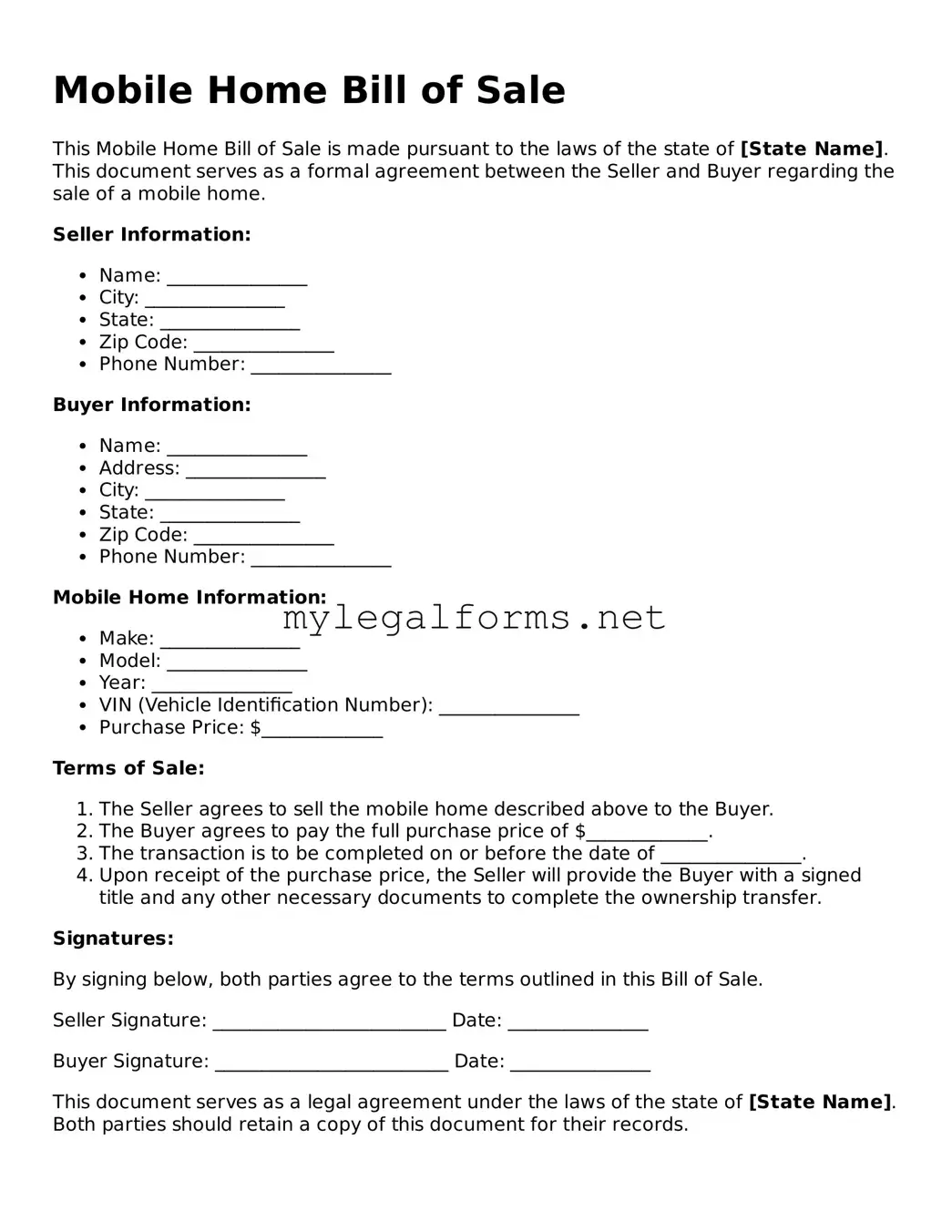Filling out the Mobile Home Bill of Sale form can seem straightforward, but many people make common mistakes that can lead to complications down the road. One frequent error is not providing complete information about the mobile home. Buyers and sellers should ensure that all details, including the make, model, year, and Vehicle Identification Number (VIN), are accurately listed. Missing even one piece of information can create confusion and potential legal issues.
Another mistake is failing to include the correct names and addresses of both parties involved in the sale. This information is crucial for establishing ownership and ensuring that both parties can be contacted if necessary. Omitting this information can lead to disputes or difficulties in transferring ownership.
People often overlook the importance of signatures. Both the seller and the buyer must sign the document for it to be valid. Without these signatures, the sale may not be legally recognized. In some cases, individuals forget to date the form, which can also create problems later on.
Additionally, many people neglect to include the sale price. This information is essential for both parties and may be required for tax purposes. Not specifying the amount can lead to misunderstandings and disputes over what was agreed upon.
Another common error is not providing a clear description of any included accessories or items. If the sale includes appliances or other features, these should be listed in detail. Failing to do so can result in disagreements about what was included in the sale.
Some individuals make the mistake of not checking for any liens on the mobile home. A lien indicates that someone else has a legal claim to the property, which can complicate the sale. It’s important to ensure that the mobile home is free of any encumbrances before finalizing the transaction.
People sometimes forget to keep copies of the completed form. Having a copy for both the buyer and seller is important for record-keeping and future reference. If any issues arise, having documentation can help resolve them more easily.
Another oversight is not understanding local regulations regarding mobile home sales. Different states and municipalities may have specific requirements that must be met. Failing to comply with these regulations can result in fines or other legal complications.
Lastly, many individuals rush through the process without reading the entire form carefully. Taking the time to review each section ensures that all information is correct and complete. A thorough review can prevent many of the issues mentioned above, making the sale smoother for everyone involved.

